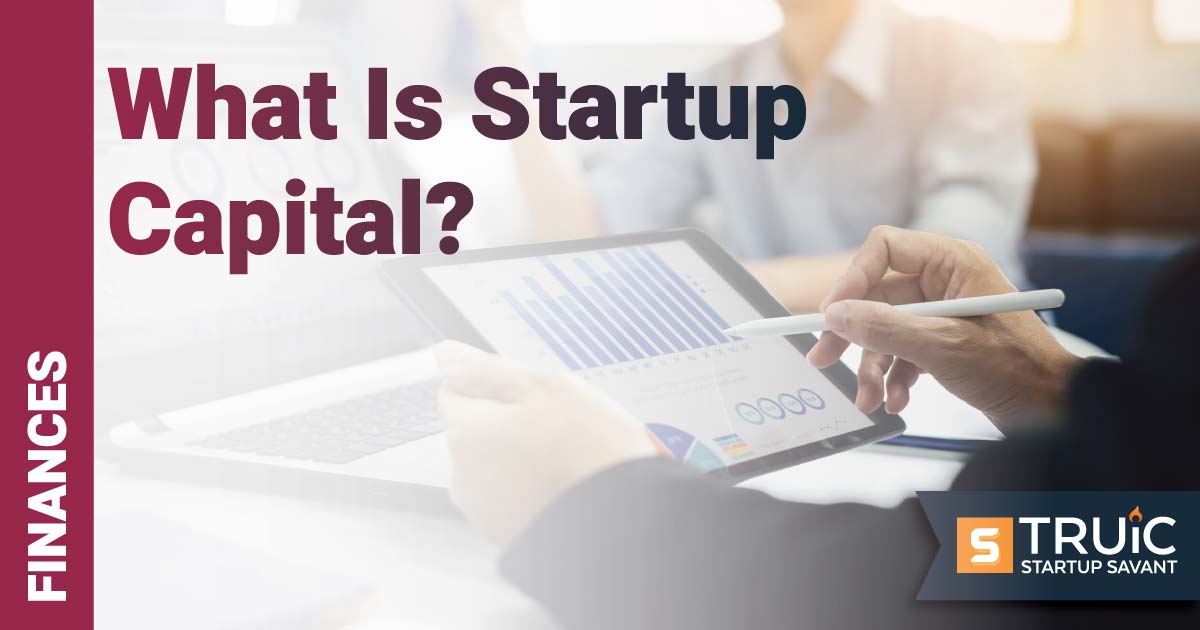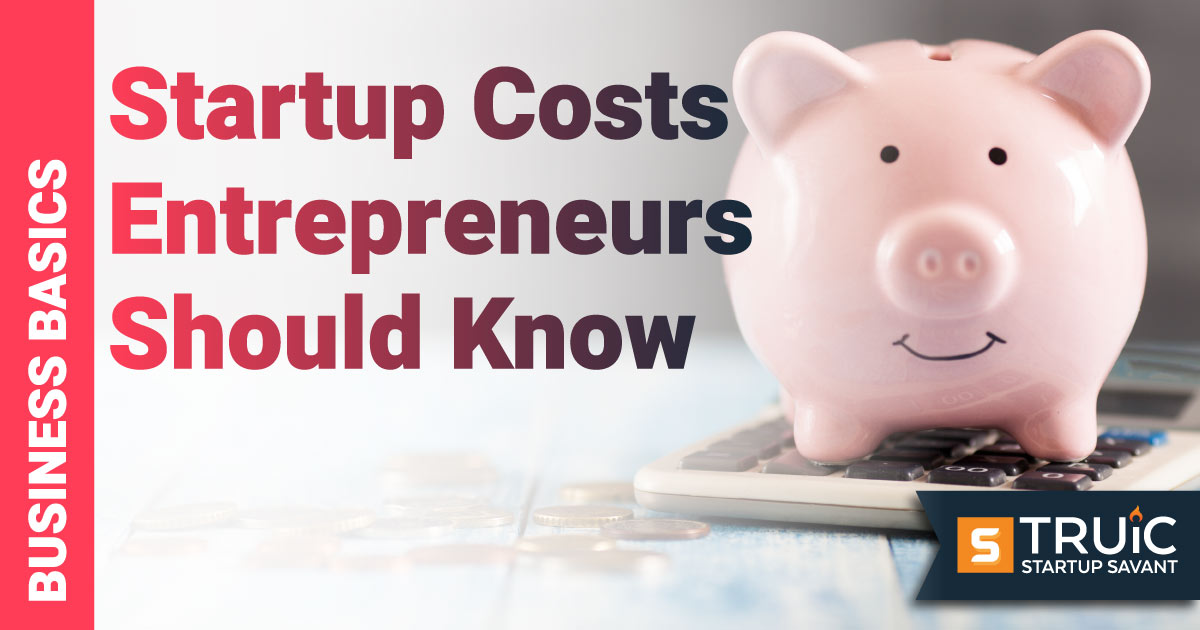What Is Startup Capital?

Last Updated: By Michaela Dale
There are many different types of funding relevant to startups and their founders. When you’re in the beginning stages of running or launching a startup, you will likely need what is called startup capital.
This guide answers the question, “What is startup capital?” It also breaks down the types you should look for in the early stages of your startup and the basics of raising startup capital.
Startup Capital: What It Is and How to Get It
What is startup capital? Startups need money not only to scale — but to survive. When you’re just starting out, you will need what is called ‘startup capital.’ This is capital that is used in the early stages of launching a startup.
Startup capital is commonly used to do things like build a minimum viable product (MVP), conduct market research, secure office space, and finance initial expenses. However, it may also be used for steps further along in the startup process, such as building an initial team or even deploying your go-to-market strategy.
Is Startup Capital Important?
Startup capital provides your new business with the financial tools to build a foundation for your company. From research and development to technology expenses, startup capital paves the road for your startup to reach important milestones.
Moreover, certain types of startup capital offer various benefits, including access to investor networks, startup resources, or discounts to useful software and platforms.
Types of Startup Capital
If you’re just starting out, you’re likely looking to secure pre-seed funding or seed funding. There are several types of startup capital that founders can obtain to launch, build, and grow their new business venture. Each type of startup capital has its advantages and disadvantages, as well as various requirements and use cases. These are a few of the types of startup capital for founders to consider during the early stages of their startup’s lifecycle.
Bootstrapping
Self-funding or bootstrapping is used most frequently in the early stages of a startup’s lifecycle. This involves the founder utilizing their own personal savings or income to fund their business. This is not usually a long-term funding option for high-growth startups. However, it can get businesses through crucial early stages, such as building an MVP or market research, setting them up to eventually take on additional funding with less debt or dilution upfront.
Startup Loans
Many entrepreneurs choose to obtain funding from banks in the form of startup or small business loans, a type of debt funding. This can be an effective way to extend the runway early on, increasing cash flow to help you get started building your business. While a business loan may have several advantages, it should be noted that it also may have requirements for business credit score and time in business. Plus, you will be required to pay this funding back with interest.
Grants
Small business grants can be hard to come by, but they serve as an excellent way to get money for your startup without worrying about repayment. While grants are often thought of as free money for your business, they do come with strings attached in many cases. This may include restrictions on how money is spent as well as reporting requirements to the institution facilitating the grant.
Venture Capital Firms
Venture capital (VC) is a type of equity funding obtained through a venture capital firm. Venture capitalists invest money into startups with the potential for high, rapid growth in order to achieve a high return on investment (ROI). Therefore, venture capital funding isn’t always the first choice for startup capital in the early stages. It is important to note that since this is a type of dilutive funding, in order to obtain it, you will do so in exchange for equity in your business.
Angel Investors
Angel investors are individuals who invest money into new startups with high growth potential. Angel investors typically take on earlier stage, and therefore higher risk, investments than venture capital firms. For a new business that is likely to scale fast, angel investors might be an effective avenue for raising capital early.
How to Get Startup Capital
Once you’ve decided the type of startup capital that’s right for your business, how do you raise startup capital? The process to raise money for a business varies widely on the type of startup funding, with each having different requirements and application processes. However, there are a few things you can expect to need regardless of the type of funding you’re seeking.
Write a Business Plan
If you haven’t already, you need to create your startup business plan. A business plan is a valuable asset for your business as well as a necessity to acquire funding from banks, venture capitalists, or angel investors. This document outlines the strategy for your business, important goals and milestones, a go-to-market strategy, and more valuable information about a startup.
Create a Pitch Deck
If you choose to seek angel or venture capital investment, you will need a pitch deck. This is a short, succinct presentation about your startup that details what your company does, the problem it is solving, the target market, the market opportunity, and other valuable information to effectively convey the value your business will bring to potential investors.
Visit our guide to creating a pitch deck to learn how to make one for your startup.
Evaluate Startup Costs
Before you seek startup capital, you should have an understanding of the amount of money you need and where that money will be spent. To calculate your startup costs, you will need to determine the expenses required to start your business. This may include technology expenses, research and development, office space, or any necessary insurance or licensing costs.
Open a Business Bank Account
This is usually one of the first steps that will follow forming your startup. If you haven’t opened a business bank account, this will be a necessary step before you obtain startup capital. Not only is it a valuable asset to your business, but a business bank is a requirement for most investors, startup loans, and grants. For the best business bank accounts for startups, check out our guide.
Frequently Asked Questions
What is the difference between startup capital and working capital?
Working capital is the assessment of cash flow your startup has at its disposal to operate the business. Startup capital, alternatively, is money raised to support product development, business growth, office space, and more.
How do you calculate startup capital?
Calculating startup capital is the process of determining how much funding your new business will require to launch and grow in the early stages. To determine this, you will need to assess your business idea and business model, conduct market research, calculate expenses, and create financial forecasts.
What is the difference between startup capital and venture capital?
Startup capital is the money required to launch a new business venture. Venture capital funds are simply one type of startup funding that can be chosen when raising capital for a business.
How do I get capital for my startup?
Before raising startup capital, you first need to determine your startup costs, write a business plan, open a business bank account, and choose the type of startup business funding that is best for your startup's immediate needs.


